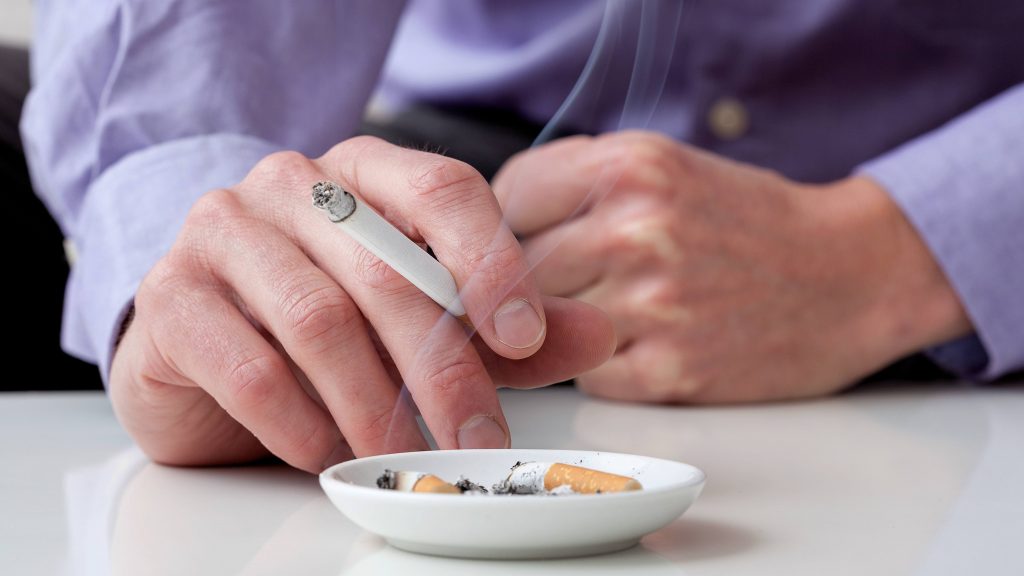
It's common knowledge that smoking is bad for your health. And, when it comes to the COVID-19 pandemic, the side effects of smoking and the behaviors of people who smoke or vape could create a one-two punch.
Smoking injures the local defenses in the lungs by increasing mucus production and inflammation. And that's why people who smoke are more likely to have serious respiratory infections and illnesses, such as influenza and pneumonia, according to Dr. J. Taylor Hays, director of Mayo Clinic's Nicotine Dependence Center.
Watch: Dr. J. Taylor Hays discusses the connection between smoking and COVID-19.
Journalists: Broadcast-quality sound bites with Dr. Hays are available in the downloads. Please courtesy: "J. Taylor Hays, M.D. / Nicotine Dependence Center / Mayo Clinic"
"And we know from the previous coronavirus outbreaks, especially the MERS (Middle East respiratory syndrome) outbreak, that smokers were more susceptible to infection and more likely to get more serious infection," says Dr. Hays. "I think the reasonable assumption is that because of those injuries to local defenses and the information we have from other respiratory infections, people who smoke will be at more risk for more serious COVID-19 infection and more likely to get even critical disease and have to be hospitalized."
The social behavior of smoking and vaping also can increase the risk of spreading the virus, as people who smoke or vape oftentimes do so in groups. And the virus easily can be transmitted as a person picks up an object and then puts it near an unmasked face.
"Smoking, vaping, hand-to-mouth social behavior, probably not distanced, unmasked, and exhaling and inhaling deeply, creating an aerosol of droplets — those are all the ways that we know it gets spread. And, so, it's very likely that people who are engaging in those behaviors are more likely to get the infection and spread it to others," says Dr. Hays.
He says the COVID-19 pandemic is an opportunity for people who smoke to recognize the serious health risks associated with the addiction and consider quitting. The best way to stop smoking is to talk to your health care provider, make a plan and stick to it, using many of the resources available, such as behavioral therapy and medications.
For the safety of its patients, staff and visitors, Mayo Clinic has strict masking policies in place. Anyone shown without a mask was recorded prior to COVID-19 or recorded in an area not designated for patient care, where social distancing and other safety protocols were followed.
Information in this post was accurate at the time of its posting. Due to the fluid nature of the COVID-19 pandemic, scientific understanding, along with guidelines and recommendations, may have changed since the original publication date.
For more information and all your COVID-19 coverage, go to the Mayo Clinic News Network and mayoclinic.org.







